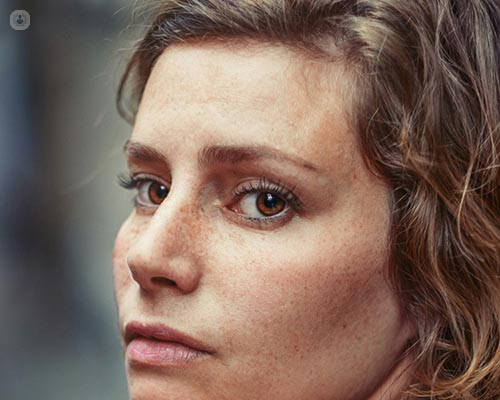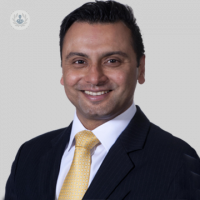Rhinoplasty consultation: what does it involve?
Written by:There are several reasons that someone ma choose to undergo a rhinoplasty, also known as a nose job. These include the correction of nasal deformities, to improve breathing and for cosmetic enhancement. Leading consultant ENT surgeon Mr Premjit Randhawa explains more about what happens during a rhinoplasty consultation.

What is typically discussed during a rhinoplasty consultation?
The most important thing to do during a rhinoplasty consultation is to discuss a patient’s concerns and expectations. These are my priority and will be discussed in detail. It is also crucial to discuss the patient’s reasons for seeking surgery, and to ensure that patients do not have any co-existing medical conditions that may affect surgical outcome.
How does a rhinoplasty consultation address specific patient concerns or desires?
Once the patient's concerns and expectations have been addressed, a comprehensive nasal examination of the nose is conducted, carried out both on the outside and inside of the nose. In cases where there is a concurrent breathing problem or signs of nasal allergy, an endoscopy may be necessary. Typically, I employ digital morphing to demonstrate the potential surgical outcomes, facilitating patient understanding and generating further discussion about the procedure and its anticipated results.
What factors are considered when determining if a patient is a suitable candidate for rhinoplasty during the consultation?
First and foremost, patients must maintain realistic expectations regarding the achievable outcomes of surgery. This is the most important aspect of determining their suitability for the procedure. Additionally, I assess for any significant comorbidities that may impact healing and surgical results, such as poorly controlled diabetes and smoking habits.
Are there any potential risks or complications discussed during the rhinoplasty consultation?
During surgery discussions, we address both patient-specific risks and general surgical risks. General risks encompass potential infections and bleeding. Specific risks associated with septo/rhinoplasty may involve asymmetry and bony irregularities (5-10%), septal perforation (1%), nasal collapse (1%), numbness, skin changes such as thread veins, smell loss (<1%), and the possibility of revision surgery.
How does the surgeon evaluate the patient's nasal structure and anatomy during the consultation process?
A thorough nasal examination is conducted, carried out both on the outside and inside of the nose. Endoscopy may be necessary in cases of co-existing breathing issues or symptoms of nasal allergy. Clinical photographs are captured to facilitate discussions regarding the nose and desired alterations. Additionally, digital morphing is utilised to visually depict the potential surgical outcomes.
If you are considering having a rhinoplasty and would like to book a consultation with Mr Randhawa, do not hesitate to do so by visiting his Top Doctors profile today.


